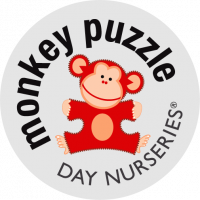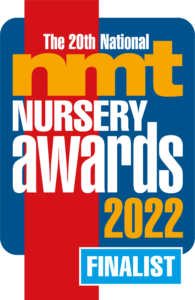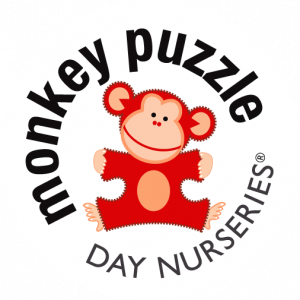Curriculum
All children at Monkey Puzzle Day Nurseries are encouraged to learn through play. Our curriculum covers all the key areas of the early years foundation stage and is designed to meet the needs of each individual child.
We follow the Government’s Early Years Foundation Stage (EYFS) framework which sets the standards for learning, development and care for children from birth up to 5 years of age.
The principles which guide the work of our Early Years Professionals and are woven into our curriculum are grouped into four themes:
A unique child – every child is a competent learner from birth who can be resilient, capable, confident and self assured
Positive Relationships – children learn to be strong and independent from a base of loving and secure relationships with parents and/or key person
Enabling Environments – the environment plays a key role in supporting and extending children’s development and learning
Learning and Development – children develop and learn in different ways and at different times; all areas of learning and development are equally important and inter-connected.
Learning and Development
Three prime areas of learning
- Personal, social and emotional development
- Communication and language
- Physical development
Four specific areas of learning
- Literacy
- Mathematics
- Understanding of the World
- Expressive Arts and Design
Key Person System
Each child has their own key person to enable them to feel reassured, safe and cared for within our setting. This person also keeps a detailed Learning Journey of the child’s progress during their time with us. These records are available to be viewed and discussed at any time by parents, who are always encouraged to add details of their child’s experiences from outside the nursery. This enables us to identify with your child’s learning requirements to ensure the most stimulating activities and effective learning goals are in place for each individual child.
Parent days are held at least twice a year and are an opportunity for parents to discuss their child’s progress on a formal one-to-one basis with their child’s Key Person. Parent Information evenings are held over the year on topics such as Positive Behavior Management.
Key Initiatives
- TINY MITES – Work with both our Bluebells andBlossoms weekly. They enjoy singing, dancing and listening to what the ‘Tiny Mites’ puppets have been doing.
- DRAMALAMAS – Work with our oldest children in Sunflowers weekly. Drama Llamas helps children understand the structure of stories, play with language and understand emotions while exploring characterisation. These building blocks give those who wish to perform in the future the skills to do it well; but for others it develops the confidence to take on more day to day challenges such as speaking up in groups.
- FOOTBALL FUTURE – Work with sunflowers weekly. The sessions include warm up activities, fun games, football skills and games. As well as teaching the children vital life skills and personal skills in the games played. Children are constantly encouraged regarding healthy eating and the benefits of exercise even at their young age as well as teaching the children the basic footballing techniques. The children have lots of fun and the main focus is always the children’s enjoyment.
- SPANISH – Our oldest children have been enjoying learning Spanish, this is usually through singing, stories, music and visual prompts.
- ITALIAN – Sunflowers have the opportunity to enjoy weekly Italian time learning the language through fun.
- YOGA – The whole nursery has weekly yoga sessions, learning about their own breathing, their bodies and mindfulness.
- SUPERNASTICS – Supernastics come into the nursery weekly and work with Blossoms. They are a broad-based, holistic programme that combines creativity and music with basic training in flexibility, balance, strength, agility, co-ordination and body awareness for young children. It creates opportunities for our children to move and participate and they love it!
- LITTLE MANDARIN – Sunflowers have weekly Mandarin lessons. Alongside learning the vocabulary and storytelling, the children sing songs, play games, roleplay and use sign language; so there’s a real mix of activities they get involved in which makes learning Mandarin a lot of fun!


